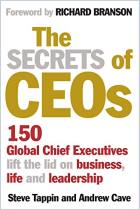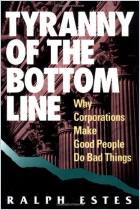Join getAbstract to access the summary!

Join getAbstract to access the summary!
Rakesh Khurana
Searching for a Corporate Savior
The Irrational Quest for Charismatic CEOs
Princeton UP, 2002
What's inside?
The corporate savior is a mythological — but still dangerous — creature.
Recommendation
Charisma and reputation have replaced management experience and industry expertise in the corner office. Certainly that’s not news to anyone who has read the business press at any time in the past decade, but the trend is certainly important enough to warrant the comprehensive examination provided by Rakesh Khurana. Starting with an analysis of the increasing power of activist institutional investors, Khurana traces the process through which boards of directors have forsaken mature managers for media darlings in their CEO searches. In light of the spate of embarrassing and enraging CEO scandals, getAbstract.com recommends this book to all readers.
Summary
About the Author
Rakesh Khurana is an assistant professor of organizational behavior at Harvard Business School. He began this project as his 1998 dissertation: The Changing of the Guard: Causes, Process, and Consequences of CEO Turnover, using a database of all the CEO turnovers in the 850 largest American corporations from 1978-1996.

























Comment on this summary